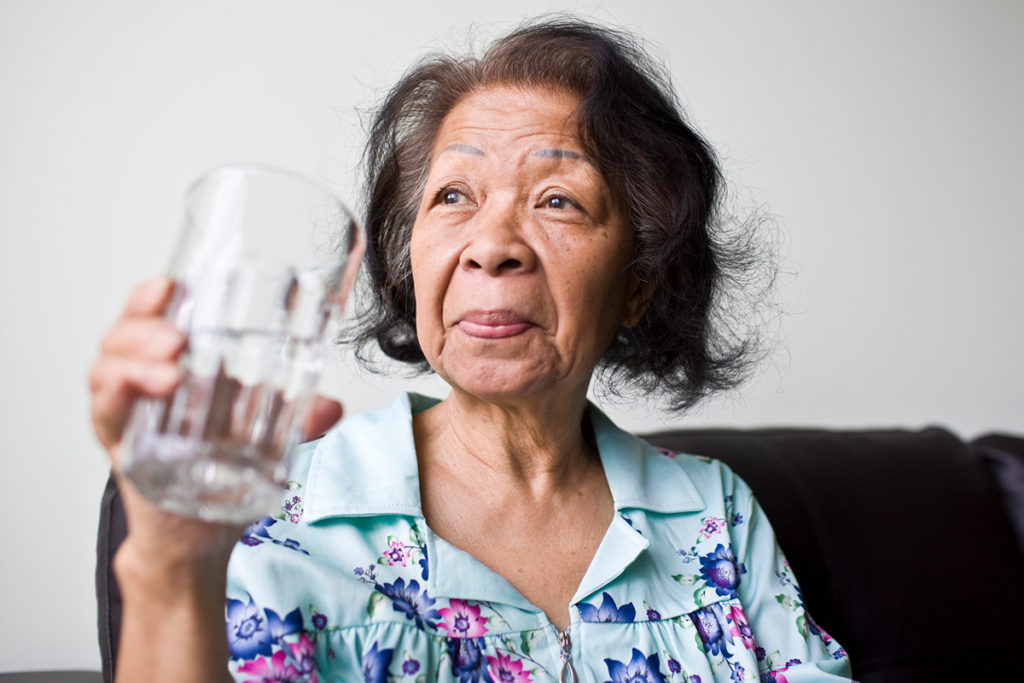
Urinary tract infections (UTIs) are very common. In fact, UTIs cause more than 8 million doctor’s visits every year, but untreated, they can lead to serious health issues like kidney infection or sepsis — especially in older adults. Preventing UTIs and knowing what symptoms to look out for are great ways to protect your or your loved one’s overall health. But you might be surprised to learn that UTIs don’t show the same signs for everyone, especially when it comes to men and older adults.
That’s why it’s important for caregivers to know what to look for.
UTI Symptoms in Older Adults
If you’ve ever had a urinary tract infection, you may be familiar with some of the classic symptoms:
- Cloudy, bloody, or strong-smelling urine
- A frequent or urgent need to use the bathroom
- Pain or burning with urination
- Low-grade fever
- Night sweats
- Cramping or pressure in the lower abdomen
The single best sign of a UTI in an older person is often a sudden behavioral change.
Although these signs of a UTI might be ones you notice in yourself, an older loved one might have different symptoms because of their aging immune system.
As a caregiver, be on the lookout for any sudden changes in your loved one’s behavior, such as loss of energy or appetite, or the inability to get dressed. Also watch for:
- Confusion
- Agitation
- Hallucinations
- Extreme fatigue
- Poor motor skills
- Dizziness
- Falling
- Sudden urinary incontinence
Some people are more likely to get a UTI than others. People with limited mobility, a weak (suppressed) immune system, or urinary tract blockages due to an enlarged prostate or kidney stones may be at a higher risk of getting a UTI.
If you see any of these signs or symptoms in your loved one, call their doctor right away!
Getting enough to drink each day is a great way to prevent urinary tract infections. Learn more about how to help prevent dehydration in yourself or an aging loved one.
How to Prevent UTIs in Older Adults
Getting a urinary tract infection can be uncomfortable, annoying, and downright painful — especially for older adults. But there are simple steps you or your loved one can take to prevent UTIs:
- Drink plenty of water, at least 64 ounces a day.
- Go to the bathroom when you need to (“holding it” can lead to bacterial growth), and empty your bladder completely.
- Drink cranberry juice (not cranberry juice cocktail) or take vitamin C or cranberry supplements to make urine less attractive to bacteria. Check with your loved one’s doctor before starting a supplement, because it may interfere with medications.
- Limit alcohol and caffeine.
- Pee after sex.
- Wear cotton underwear. Change daily.
- Avoid feminine hygiene products such as douches and powders, and wipe from front to back.
- Shower, rather than bathe, if possible. Always keep the genital area clean.
- Limit use of catheters in those with limited or no mobility.
Avoiding UTIs altogether is, of course, the best thing to do. But knowing that they can show up in seniors without the classic symptoms can ensure treatment before more-serious health problems develop.


